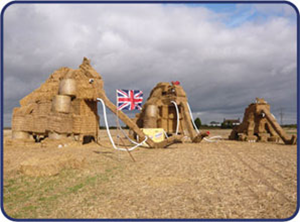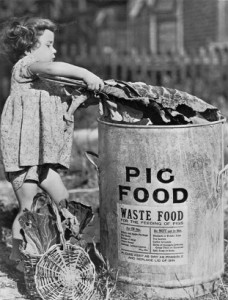“I think we are well advised to keep on nodding terms with the people we used to be, whether we find them attractive company or not. Otherwise they turn up unannounced and surprise us, come hammering on the mind’s door at 4 a.m. of a bad night and demand to know who deserted them, who betrayed them, and who is going to make amends.”
~ Joan Didion, Slouching Towards Bethlehem
And the real truth is, wherever you go, there you are.
Greetings from the Writing Bunker! I’m pulling ahead with my middle grade WIP, and having fun with it, and still pondering how to get everyone out of the jams I put them into in my YA SFF novel. It’s a lot harder than I thought, to have High Adventure going on. People spend a lot of time being chased and running away, I notice.

You might notice that I have a “in case you need book report fodder” note on the right hand side of the page now. That’s because I’ve been asked for another interview, and one of the interviewers first questions was, “What are your books, and what are they about?”
–??!!???!!
No, seriously. You can’t make this stuff up.
So, to avoid feeling humiliated and/or taking a flamethrower to well-meaning but basically disinterested people who have been assigned to interview me, I’ve gathered some information to which I will point those kinds of interviewers so they don’t have to actually talk to me, if they’re inventive. I think I can safely declare us charter members of a newly formed Mutual Disinterest Society.
Bah.
In mid-July there was a lot of chatter going on – at least on this side of the pond – about a series of books written by Enid Blyton. The publishers and the estate of Enid Blyton are going to update the language in the books from Archaic British English to Modern British English, in hopes of exciting a few more readers and widening the readership of a series of books, most of which were first published in the 1940’s, and contain pejorative phrases like “dirty tinker” to describe travelers or gypsy people, and “an awful swotter” to describe someone who liked to study and read.

The furor was distressing to me, because so many people raved about “preserving” this series, and the language of the time, and how awful it was that the books were losing their special, uniquely British touch to be bowdlerized into the ordinary and the average. While I understood the preservationist point of view, and the fact that the books reflect the values, language and social mores of a bygone era, and that Children Should Be Made to Read Up, and Great Literature Ought Not To Be Brought Down To The Common Level, the fact remains: living, breathing kids in the now could use more good books (and I view Enid Blyton’s Famous Five series, with its racist, sexist and classicist language as “good books” with only the most skeptical eyes) to read, and the publisher, of course, wants to make more money, as do Enid’s heirs.
The mindset of “children should read up” reared its ugly head again recently when I read a discussion of The Novel: An Alternate History – Beginnings to 1600, by Steven Moore. This is a massive and allegedly scholarly tome, being deconstructed by a thoughtful, well-spoken woman, but the book itself and her subsequent blog post is not the point — what the author says in his introduction is what struck me.
“Do you want to know a secret?”
“Literature is not for everyone… when it comes to fiction, there’s a democratic assumption that anyone with a basic education should be able to read and enjoy any novel… Hence some feel it is reprehensible to write a novel beyond a high school reading age. … Why this bleeding-heart concern for ‘the mass of readers’, ‘the common reader’? They have more than enough to satisfy them, as the best-seller lists indicate; most of the publishing industry caters to their tastes. Why this intolerance for the minority of readers with a different textual orientation who prefer an alternative kind of fiction… Such fiction is challenging and unconventional, granted, but the fact that it’s not for everyone doesn’t make it elitist, snobbish, pretentious, arrogant, or wrong-headed. It’s simply not for everyone.”

That really both blew me away, and really grieved me all at once, because I AM that “everyone” who was not raised and polished to special literate status, who didn’t study Greek mythology or Roman Classics or histories or Shakespeare, even, until college, or anything which would have propelled me along toward the shining towers of the Ivy Leagues. I AM that everyone, that nobody to whom Moore directs this, sneaking around the edges of what Other People read and thought, and how Other People lived, and sampling bits and pieces of that through literature.
How else was I supposed to become? And he thinks to criticize me for being the common reader!? Really? If you are not tied with a silver bib and fed Plutarch with a platinum spoon, how else are you supposed to arrive at these Big and Lofty Thoughts and ideals he espouses as especially for that “minority of readers”?
Perhaps what bothers me more is that there are people who found his statements obnoxious on the surface, but somehow true at heart. They felt critical of his tone, but indicated that literature which “pandered” to our “escapist childhood instincts” should really be avoided, and that we are a world of indiscriminate readers who need to elevate and raise ourselves, or else we get what we deserve in this world — the low, the inauthentic, the common and the trashy.
Or, you know, popular culture.
Read UP, children of the world! Be better than you are, be more worthy of the literature you’re supposed to love…
Mr. Moore attempts to justify the deliberate manufacture of a work which is only accessible to a few, not to make the work better, but simply to engage in an exercise of writing which somehow says that the people who read the work are better. This, to me, is “elitist, snobbish, pretentious, arrogant, or wrong-headed.”

Imagine that the language being discussed in these works wasn’t the language of archaic Britain, and wasn’t language “beyond a high school reading age,” but was something like African American Vernacular English – or as it was called when I was an undergrad Black American English, or BAE. It’s not for everybody, certainly. Nobody panders to people who would read works written in dialectical English primarily used by inner city African Americans, certainly not the mainstream publishers. Would people be concerned about preserving a work (by not altering it), if it were written in “ebonics?” (Remember all the hysteria over that?) Would they find the work “elitist, snobbish, pretentious, arrogant, or wrong-headed?” Would they feel the need to defend the language used?
Hmm.
Something to think about this breezy Wednesday morn. Or not. This one might give you a headache.










